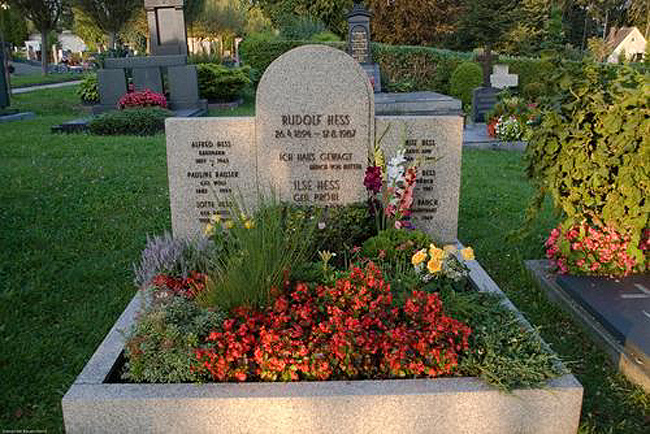By M. Raphael Johnson. The life of Rudolf Hess constitutes one of the glaring examples of myth within the study of World War II and beyond. In the orgy of demonization that brought on and sustained World War I and its aftermath, Rudolf Hess’s memory needed to be effaced from the earth. His mission to Britain for peace, according to the Nuremberg Trials, was a “war crime” for which Hess needed to be punished. Hess was sentenced on October 1, 1946 to life imprisonment.
He was, without question, a sympathetic character, repelled by war and violence and, most famously, sought a just and lasting peace with Great Britain. As a result, he landed in prison for the rest of his long life, and was murdered in the end.

The purpose of this essay is to explore the personality of Hess in relation to his famous mission to Britain. His letters to his wife are available to the public, and many of them have been published in a book, Prisoner of Peace (abbreviated PP, Britons Publishing, London, 1954), edited by George Pile with commentary by Meyrick Booth, Ph.D. The very fact that a National Socialist could ever be a sympathetic character is a thought of the utmost subversiveness. Another useful book is that by his son, Wolf Rüdiger Hess, My Father Rudolf Hess (Star, 1984, abbreviated by FRH), as well as James Leasor’s Uninvited Envoy (McGraw-Hill, 1962) and David Irving’s Hess: The Missing Years 1941-1945 (Macmillan, 1987). [Read the entire article as PDF…]
Taken from
The Barnes Review, July/August 2001: The Tragedy of Rudolf Hess
VOLUME VII, NUMBER 4